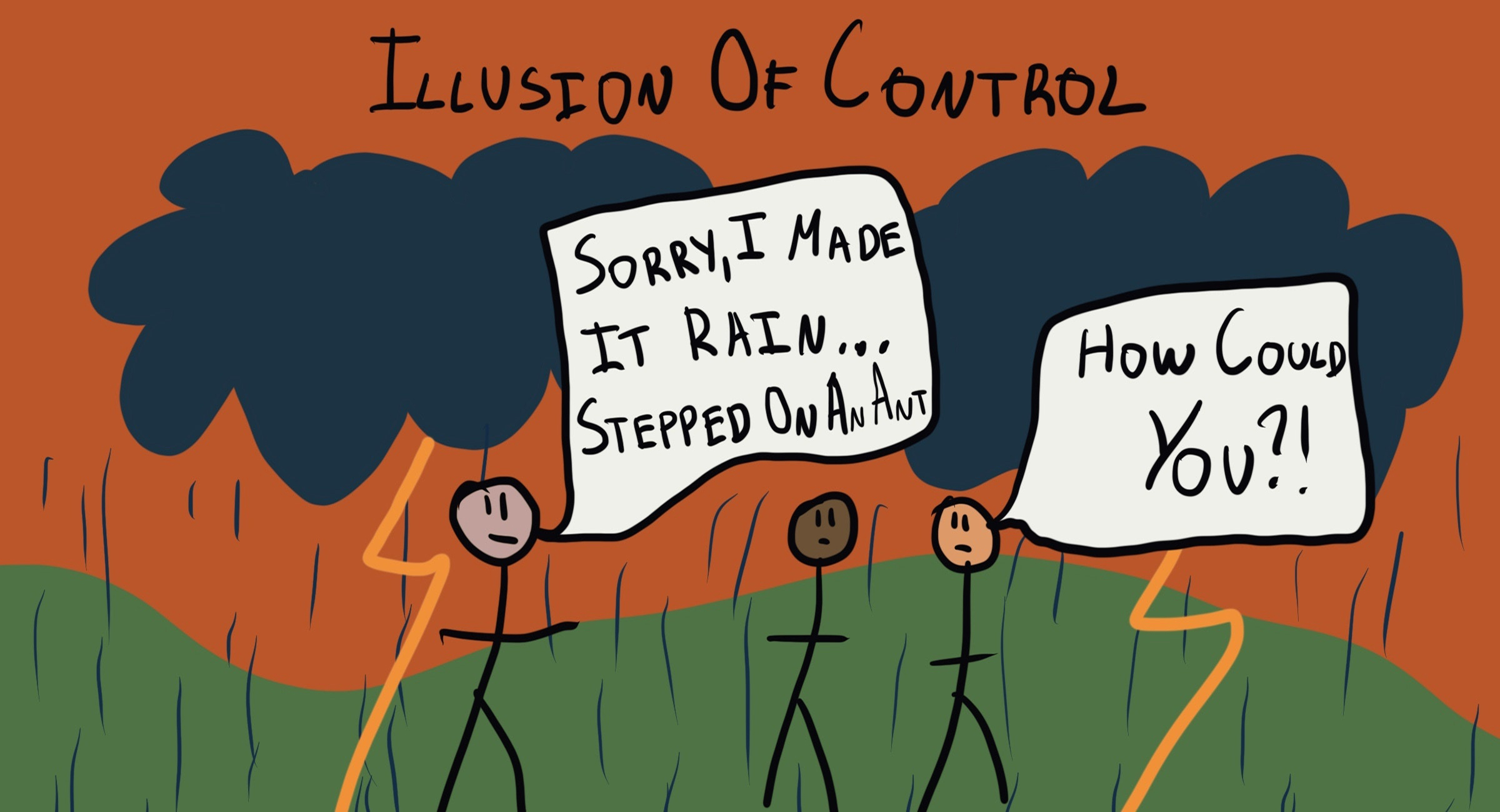The illusion of control is a cognitive bias that leads individuals to overestimate their ability to control or influence outcomes that are largely determined by chance, luck, or factors beyond their control. People often exhibit this bias by believing they have more control over events than they actually do.
Explanations:
The illusion of control is related to the need for agency and autonomy. People prefer to feel that they have influence over their circumstances, and this preference can lead to overestimating their control, even in situations where chance plays a significant role.
Examples:
Gambling: A person at a slot machine may believe that their button-pressing patterns or timing influence the outcome, even though slot machines are based on random number generators.
Superstitions: Individuals may engage in superstitious behaviors, such as wearing a lucky charm, believing it will influence the outcome of an event like a sports game or an exam.
Investing: An investor may think that their specific trading strategy can consistently beat the market, even when evidence suggests that market performance is largely unpredictable.
Solutions:
Realistic Assessment: Strive to realistically assess the degree of control you have in different situations and recognize when chance or external factors play a significant role.
Risk Management: When making decisions involving chance, consider the potential risks and uncertainties involved and avoid overcommitting based on an illusory sense of control.
Objective Feedback: Seek feedback and advice from experts or trusted individuals to gain a more realistic perspective on your level of control in a given situation.
Mindfulness: Practice mindfulness and self-awareness to recognize when the illusion of control is influencing your decisions.
Addressing the illusion of control involves recognizing the need for autonomy and the natural tendency to overestimate control. By acknowledging the limits of control in various situations, individuals can make more informed and rational decisions.
